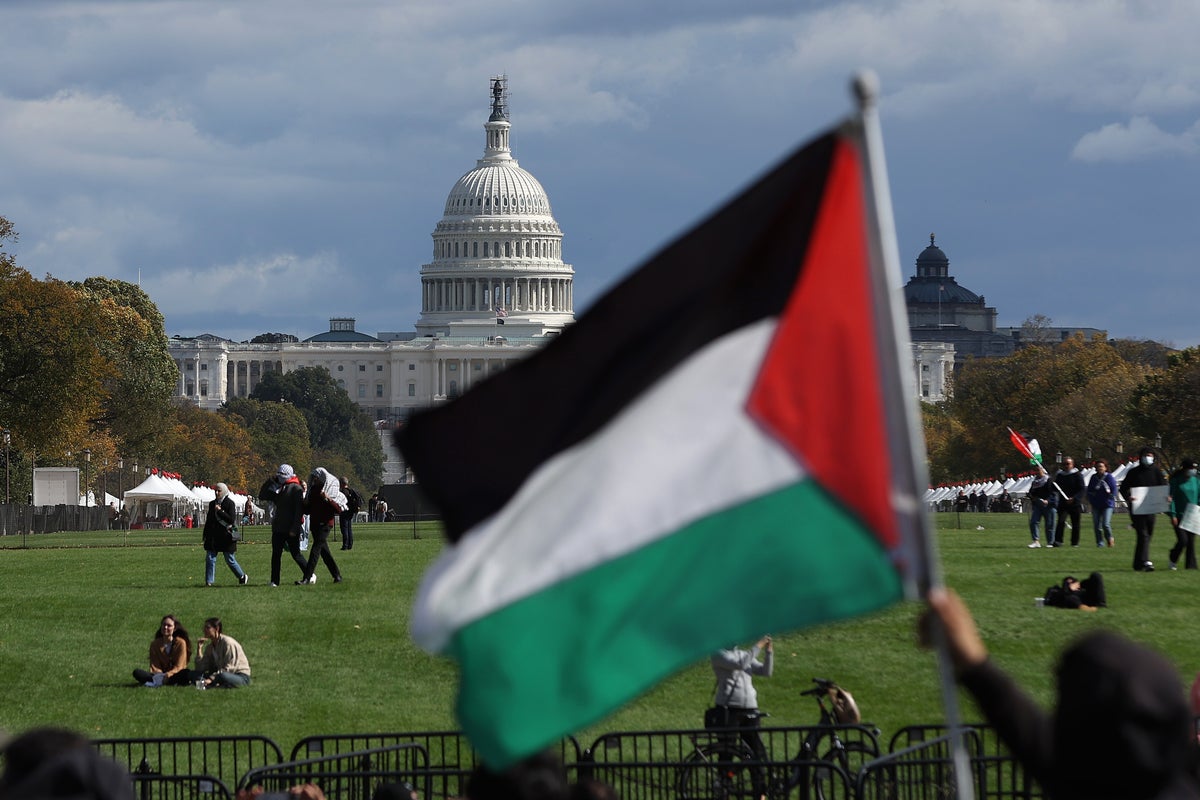
The United States will be “denying and revoking visas” from members of the Palestine Liberation Organization and Palestinian Authority ahead of the United Nations General Assembly, the State Department announced on Friday.
In a significant move ahead of the assembly, the department said it was holding the PLO and PA “accountable” for “not complying with their commitments, and for undermining the prospects for peace.”
It’s unclear if the U.S.’s declaration will impact Palestinian Authority President Mahmoud Abbas from attending the U.N. General Assembly.
Multiple U.S. allies, who are expected to be present at the September assembly in New York City, have announced they will recognize a Palestinian state, including France, the U.K., Canada, and Australia.
While Palestine is not considered a full U.N. member, in part because the U.S. vetoed a resolution in April that would have recognized its statehood, the U.N. does consider Palestine an observer state.
The PLO is the political organization that represents the Palestinian people and advocates for establishing an independent Palestinian State.
The PA is the government body that oversees parts of Palestine.
The State Department said the PA’s Mission, the body that represents Palestinian interests on the global stage, will receive “waivers per the UN Headquarters Agreement.”
Under the headquarters agreement, the U.S. is required to allow access for foreign diplomats to the U.N. but can deny visas for national security or terrorism reasons.
It’s unclear how many visas will be revoked as part of the policy, the State Department did not clarify.
The State Department’s move appears consistent with the administration’s previous decisions to limit the presence or influence of Palestine. Trump has remained a close ally to Israeli Prime Minister Benjamin Netanyahu, who has long-rejected recognizing Palestine as an independent state.
In July, the U.S. State Department announced it would invoke sanctions denying visas to unnamed PA and PLO officials for what U.S. officials believe is supporting terrorism.
Since the Hamas-led October 7, 2023 attack on Israel, in which 1,200 people were killed and hundreds of other were taken hostage, Netanyahu has waged a war in Gaza.
More than 63,000 people have been killed in Gaza since the start and global organizations have accused Israel of committing genocide against the people of Palestine. Gaza has been pushed to the brink of mass starvation.
Both Trump and former president Joe Biden have sought to broker peace between Hamas and Israel but failed to do so.
In the State Department’s announced on Friday, they accused PA officials of contributing to the breakdown of ceasefire talks by pursuing legal cases against Israel through international courts.
“Before we take them seriously as partners in peace, the PA and PLO must completely reject terrorism and stop counterproductively pursuing the unilateral recognition of a hypothetical state,” State Department spokesperson Tommy Pigott wrote on X.
